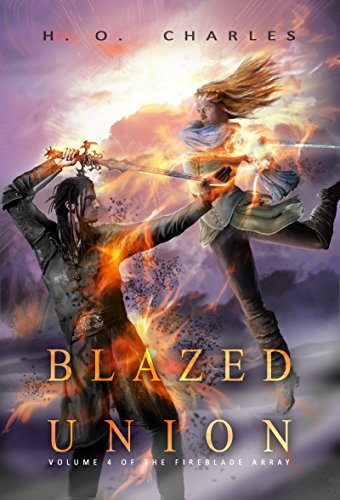Judging English by Carol L. Wright
March 13, 2024 by Bethlehem Writers Group in category From a Cabin in the Woods by Members of Bethlehem Writers Group tagged as American English, British English, English, Noah Webster
As readers of English, it’s fairly easy for us to tell whether an author is from the US or the UK simply because of word choices or spelling variations between the two countries. The reason for this is partly that, at the time of American independence, spelling in English was not completely standardized. How one spelled a word depended more on local convention than a universally accepted right or wrong spelling. Even Jane Austen misspelled (by today’s standards) a word in the title of one of her juvenile works: Love and Freindship.
When American spellings were standardized in the early 19th century, by the publication of Noah Webster’s first American dictionary, the author was intent on exerting a bit of linguistic independence from Britain. Thus, many American words no longer conform to “the King’s English.” In his original 1828 dictionary, Webster presented simplified American spelling to more closely reflect common pronunciation. This is why some US words have one less letter than used in the UK (e.g. color/colour, harbor/harbour, or valor/valour). Americans also drop letters at the end of some words (such as program/programme) or reverse letters (as with theater/theatre). We might want to ask Webster, however, why there is still an I in Austen’s troublesome word friendship, and why he didn’t reform the spellings of tough, though, and through.
Ordinarily, a reader will pass over these differences in spelling without any difficulty. They generally make little difference in how we would say these words, so why should we allow the spelling to give us pause? I have wondered, though, why, in Webster’s eagerness to simplify American spelling, he made a change to one specific word: judgment.
No matter which side of the Atlantic we’re on, English speakers know that we have two consonants that can produce two different sounds: C and G. The letter C can be pronounced as either a K (hard sound) or an S (soft sound); G can be a hard Guh or a soft J. The vowel that follows these consonants informs us as to whether to give the consonant a hard or a soft sound. If the letter is followed by an A, O, or U, it has a hard sound as in carrot, color, current, gable, golf, or guppy. If, however, the vowel that follows the consonant is an E or an I, the consonant should be pronounced with the soft sound, as in cereal, circle, genuine, giraffe . . . or judge.
So far so good, right?
But even Webster was inconsistent. When adding -ment to the word judge, he dropped the e, spelling it judgment. But this makes no sense. If we must drop the E when making judge into judgment, shouldn’t Americans instead spell it as judjment to match how we pronounce it? Or should we just say it jug-ment?
This English idiosyncrasy annoys me a bit. But then, while reading a British author, I noticed something that appeared to me to be an error. The author spelled judgment with an E after the G: judgement. Is it unpatriotic for an American to accuse Noah Webster of getting it wrong? Well, if so—hold on—so do the British! It turns out, in Britain, both spellings, judgment and judgement, are considered correct, but the preferred spelling is . . . judgment.
As many English-as-a-second-language students will tell you, if you’re looking for logic in a language, learn something else. (And we haven’t even mentioned usage in the British Commonwealth.)
The good news is that no matter which side of the Atlantic you come from, or which standard English you use, the 2024 Bethlehem Writers Roundtable Short Story Award competition will be happy to accept your story through our deadline of March 31, 2024. Stories of 2000 words or fewer—in English—are welcome. Our theme this year is “Holiday Stories” (holiday being defined as from US Thanksgiving through New Year’s Day). Winners receive cash and publication. To learn more, see the website at: https://bwgwritersroundtable.com/short-story-award-2/.
We hope you will consider entering your holiday stories and we look forward to reading them. And when we’re scoring them, we promise we will use our best judgement—er judgment!
A Few of Carol’s Publications
PORTMANTEAUS by Jenny Jensen
September 19, 2021 by Jenny Jensen in category On writing . . . by Jenny Jensen tagged as creative writing, English, language, portmanteau
We’re so lucky. The English language is like play dough.
Oh yes, we have strict rules of grammar, tense, POV, all the way to the minutia of intransitive verbs. We can choose from a number of eminent grammar and style guides to ensure conformity. We have stalwart English teachers to drill those rules into our heads so that we are all on the same page. (And bless them all – there is nothing better than order over chaos). But despite those rules a writer has so much freedom to shape our mother tongue into forms wry, brittle, silly, heartbreaking, snarky or just plain mad.
I don’t have much command of any other language; a smatter of German, a soupçon of French, about a third cup of Latin and a healthy plateful of Spanish. But I do know that the rules of those languages are not as forgiving as English — not as much room to roam before you run afoul of the language police. English allows us to mangle all the rules of spelling, meaning, and sentence structure to reflect dialect, or character traits, add color, shift perceptions or mood and anyone with a good command of English can understand — and only pedants ever complain. Of course, you have to use the rules of punctuation. Gotta have those traffic signs.
Anthony Burgess used bits and pieces of Russian mixed with Shakespearian English and other tongues to give us Nadsat, the terrifyingly unique argot of his dark characters in A Clockwork Orange. The reader may have had to work at it a bit, but it was intelligible and colored the story with an unforgettable feel. Fantasy and Sci Fi from J.K. Rowling to Ursula K. Le Guin play with all sorts of mixed up language that become magical words and when you’re reading in those worlds you understand.
Dialect and special vocabulary enrich a tale on many levels and I’m in awe of those writers who do them well, but my favorite form of play dough English is the portmanteau. Anybody can create one of these inventive combinations, and everybody does — usually with something faintly deprecating or ironically funny in mind. And with just one word a portmanteau can ooze with meaning. Frenemy speaks volumes — we’ve all had one and it’s exhilarating to give ‘em a proper name. Craptacular very neatly wraps up the verdict on so much of our over-hyped media. And then there’s pompidity, my own invention from University days when I struggled to describe the quality of politicians.
All writers love words. Words are paint, chisel, fabric, and clay for our creativity. If you can’t find that one word that perfectly reflects your intent, try cobbling a new one together — no one will take points away. Blog is a portmanteau (web log) so if you’re lucky enough to have your portmanteau go viral, you might wind up in the OED.
Jenny
3 0 Read morePORTMANTEAUS by Jenny Jensen
March 24, 2018 by Jenny Jensen in category On writing . . . by Jenny Jensen tagged as creative writing, English, language, portmanteau
We’re so lucky. The English language is like play dough.
Oh yes, we have strict rules of grammar, tense, POV, all the way to the minutia of intransitive verbs. We can choose from a number of eminent grammar and style guides to ensure conformity. We have stalwart English teachers to drill those rules into our heads so that we are all on the same page. (And bless them all – there is nothing better than order over chaos). But despite those rules a writer has so much freedom to shape our mother tongue into forms wry, brittle, silly, heartbreaking, snarky or just plain mad.
I don’t have much command of any other language; a smatter of German, a soupçon of French, about a third cup of Latin and a healthy plateful of Spanish. But I do know that the rules of those languages are not as forgiving as English — not as much room to roam before you run afoul of the language police. English allows us to mangle all the rules of spelling, meaning, and sentence structure to reflect dialect, or character traits, add color, shift perceptions or mood and anyone with a good command of English can understand — and only pedants ever complain. Of course, you have to use the rules of punctuation. Gotta have those traffic signs.
Anthony Burgess used bits and pieces of Russian mixed with Shakespearian English and other tongues to give us Nadsat, the terrifyingly unique argot of his dark characters in A Clockwork Orange. The reader may have had to work at it a bit, but it was intelligible and colored the story with an unforgettable feel. Fantasy and Sci Fi from J.K. Rowling to Ursula K. Le Guin play with all sorts of mixed up language that become magical words and when you’re reading in those worlds you understand.
Dialect and special vocabulary enrich a tale on many levels and I’m in awe of those writers who do them well, but my favorite form of play dough English is the portmanteau. Anybody can create one of these inventive combinations, and everybody does — usually with something faintly deprecating or ironically funny in mind. And with just one word a portmanteau can ooze with meaning. Frenemy speaks volumes — we’ve all had one and it’s exhilarating to give ‘em a proper name. Craptacular very neatly wraps up the verdict on so much of our over-hyped media. And then there’s pompidity, my own invention from University days when I struggled to describe the quality of politicians.
All writers love words. Words are paint, chisel, fabric, and clay for our creativity. If you can’t find that one word that perfectly reflects your intent, try cobbling a new one together — no one will take points away. Blog is a portmanteau (web log) so if you’re lucky enough to have your portmanteau go viral, you might wind up in the OED.
Jenny
4 0 Read more
Affiliate Links
A Slice of Orange is an affiliate with some of the booksellers listed on this website, including Barnes & Nobel, Books A Million, iBooks, Kobo, and Smashwords. This means A Slice of Orange may earn a small advertising fee from sales made through the links used on this website. There are reminders of these affiliate links on the pages for individual books.
Search A Slice of Orange
Find a Column
Archives
Featured Books
THE CHRISTMAS WISH
Will Eve find it’s possible that Christmas wishes aren’t only for little girls?
More info →BLAZED UNION
Fate has other plans for those with fire and fury in their hearts.
More info →Newsletter
Contributing Authors
Search A Slice of Orange
Find a Column
Archives
Authors in the Bookstore
- A. E. Decker
- A. J. Scudiere
- A.J. Sidransky
- Abby Collette
- Alanna Lucus
- Albert Marrin
- Alice Duncan
- Alina K. Field
- Alison Green Myers
- Andi Lawrencovna
- Andrew C Raiford
- Angela Pryce
- Aviva Vaughn
- Barbara Ankrum
- Bethlehem Writers Group, LLC
- Carol L. Wright
- Celeste Barclay
- Christina Alexandra
- Christopher D. Ochs
- Claire Davon
- Claire Naden
- Courtnee Turner Hoyle
- Courtney Annicchiarico
- D. Lieber
- Daniel V. Meier Jr.
- Debra Dixon
- Debra H. Goldstein
- Debra Holland
- Dee Ann Palmer
- Denise M. Colby
- Diane Benefiel
- Diane Sismour
- Dianna Sinovic
- DT Krippene
- E.B. Dawson
- Emilie Dallaire
- Emily Brightwell
- Emily PW Murphy
- Fae Rowen
- Faith L. Justice
- Frances Amati
- Geralyn Corcillo
- Glynnis Campbell
- Greg Jolley
- H. O. Charles
- Jaclyn Roché
- Jacqueline Diamond
- Janet Lynn and Will Zeilinger
- Jeff Baird
- Jenna Barwin
- Jenne Kern
- Jennifer D. Bokal
- Jennifer Lyon
- Jerome W. McFadden
- Jill Piscitello
- Jina Bacarr
- Jo A. Hiestand
- Jodi Bogert
- Jolina Petersheim
- Jonathan Maberry
- Joy Allyson
- Judy Duarte
- Justin Murphy
- Justine Davis
- Kat Martin
- Kidd Wadsworth
- Kitty Bucholtz
- Kristy Tate
- Larry Deibert
- Larry Hamilton
- Laura Drake
- Laurie Stevens
- Leslie Knowles
- Li-Ying Lundquist
- Linda Carroll-Bradd
- Linda Lappin
- Linda McLaughlin
- Linda O. Johnston
- Lisa Preston
- Lolo Paige
- Loran Holt
- Lyssa Kay Adams
- Madeline Ash
- Margarita Engle
- Marguerite Quantaine
- Marianne H. Donley
- Mary Castillo
- Maureen Klovers
- Megan Haskell
- Melanie Waterbury
- Melissa Chambers
- Melodie Winawer
- Meriam Wilhelm
- Mikel J. Wilson
- Mindy Neff
- Monica McCabe
- Nancy Brashear
- Neetu Malik
- Nikki Prince
- Once Upon Anthologies
- Paula Gail Benson
- Penny Reid
- Peter Barbour
- Priscilla Oliveras
- R. H. Kohno
- Rachel Hailey
- Ralph Hieb
- Ramcy Diek
- Ransom Stephens
- Rebecca Forster
- Renae Wrich
- Roxy Matthews
- Ryder Hunte Clancy
- Sally Paradysz
- Simone de Muñoz
- Sophie Barnes
- Susan Squires
- T. D. Fox
- Tara C. Allred
- Tara Lain
- Tari Lynn Jewett
- Terri Osburn
- Tracy Reed
- Vera Jane Cook
- Vicki Crum
- Writing Something Romantic
Affiliate Links
A Slice of Orange is an affiliate with some of the booksellers listed on this website, including Barnes & Nobel, Books A Million, iBooks, Kobo, and Smashwords. This means A Slice of Orange may earn a small advertising fee from sales made through the links used on this website. There are reminders of these affiliate links on the pages for individual books.

































































